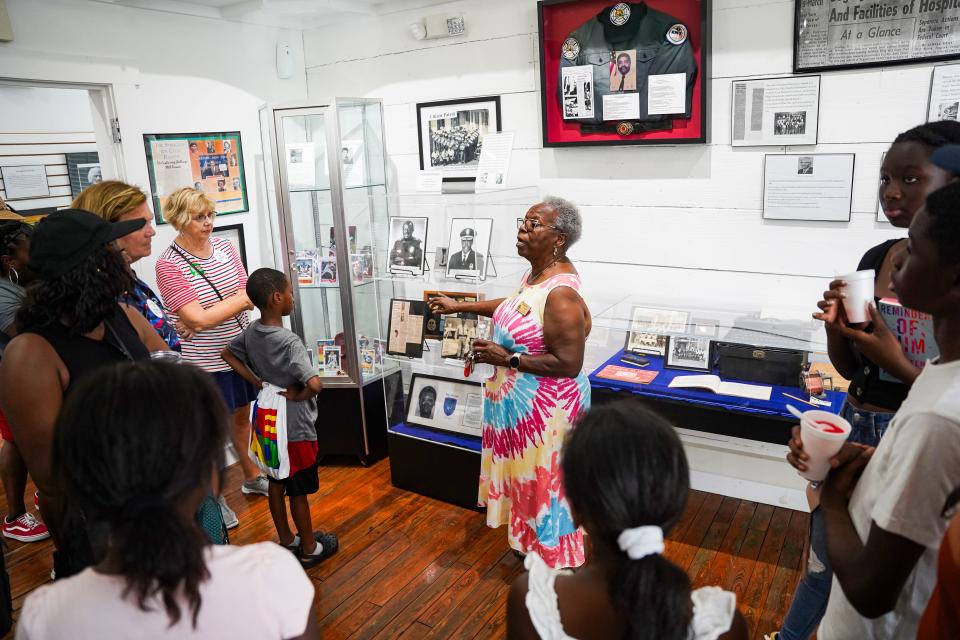Teachers confused by new African American history standards
Teachers in Florida have said they’re confused by the state’s new African American history standards and it’s not hard to see why. While the new standards rightfully put more emphasis on African American history in the curriculum than the previous ones from 2021, the document outlining the new standards is flawed for more reasons than the one infamous sentence currently dominating the news.

The African American history standards are part of “Florida’s State Academic Standards – Social Studies, 2023” and a quick comparison between the 2021 and 2023 standards illustrates the situation. The 2021 version is 86 pages long while the new one is 216 pages. The difference in length is from the addition of “benchmark clarifications” which include examples for each requirement.
An important difference between the 2021 and 2023 versions is that in the former there is one section devoted to “American History” but in the latter there is an “American History” section and a separate "African American History” section. This was surely intended to put additional emphasis on African American history, but the new section was written in a confusing way.
So what’s wrong with the new standards? First, the “African American History” standards are oddly divided up throughout the document so that the requirements for each grade are not all listed in the same places. There is the main section for “African American History” found on pages 3-21. Other “African American History” requirements are listed by grade in separate sections on pages 23, 29, 35, 41, 51, 62, 70-72, and 124-137. There are even more requirements mentioning “slavery,” “African Americans,” or “Jim Crow” scattered throughout the “American History” standards (pages 48, 50, 60-61, 99-104, 117, and 120-122). As such, it will be difficult to implement these new requirements. Meanwhile, the requirements for the rest of the social studies are all clearly outlined consistently by each grade making them easier to implement.
Second, several of the “African American History” benchmark clarifications include irrelevant and even improper examples. In standard SS.912.AA.1.1 on comparing different systems of slavery one of the examples for comparison is the “Indian caste system.” Asking high school students to compare American chattel slavery with Hindu systems of varna and jati is simply inappropriate.
Third, the new “African American History” requirements manage to be unclear about whose history is being studied. Frederick Douglass is identified as an “African living in America” even though he was born in Maryland. Throughout the document the same people are randomly called “African Americans” or “blacks” and “slaves” or the “enslaved.” These terms don’t have the same connotations and greater consistency is necessary.
Fourth, the “African American History” standards have a curious omission. The standards for Kindergarten “American History” begins with the requirement that students “develop an awareness of a primary source” and 8th grade “American History” begins with the requirement that students “use research and inquiry skills to analyze American History using primary and secondary sources.” This is exactly how history should be taught, but this requirement isn’t explicitly stated in the “African American History” standards. Instead the emphasis in the early grades is on identifying and recognizing “positive influences and contributions by African Americans” with no analysis. In the later grades “analysis” is required but there is no mention of “primary and secondary sources” as in “American History.”
It's simple – the 2021 American history standards did not adequately incorporate African American history but the new standards are flawed. There is nothing wrong with saying this if everyone involved wants history instruction in Florida schools to be as good as possible rather than use it to score partisan political points.
I recommend that the African American History Taskforce be expanded to include at least one practicing history teacher and that it be asked to edit and revise the standards. Florida’s educational leadership needs to get the standards right.
Eric Strahorn is an associate professor of history at Florida Gulf Coast University.
This article originally appeared on Fort Myers News-Press: Teachers confused by new African American history standards

